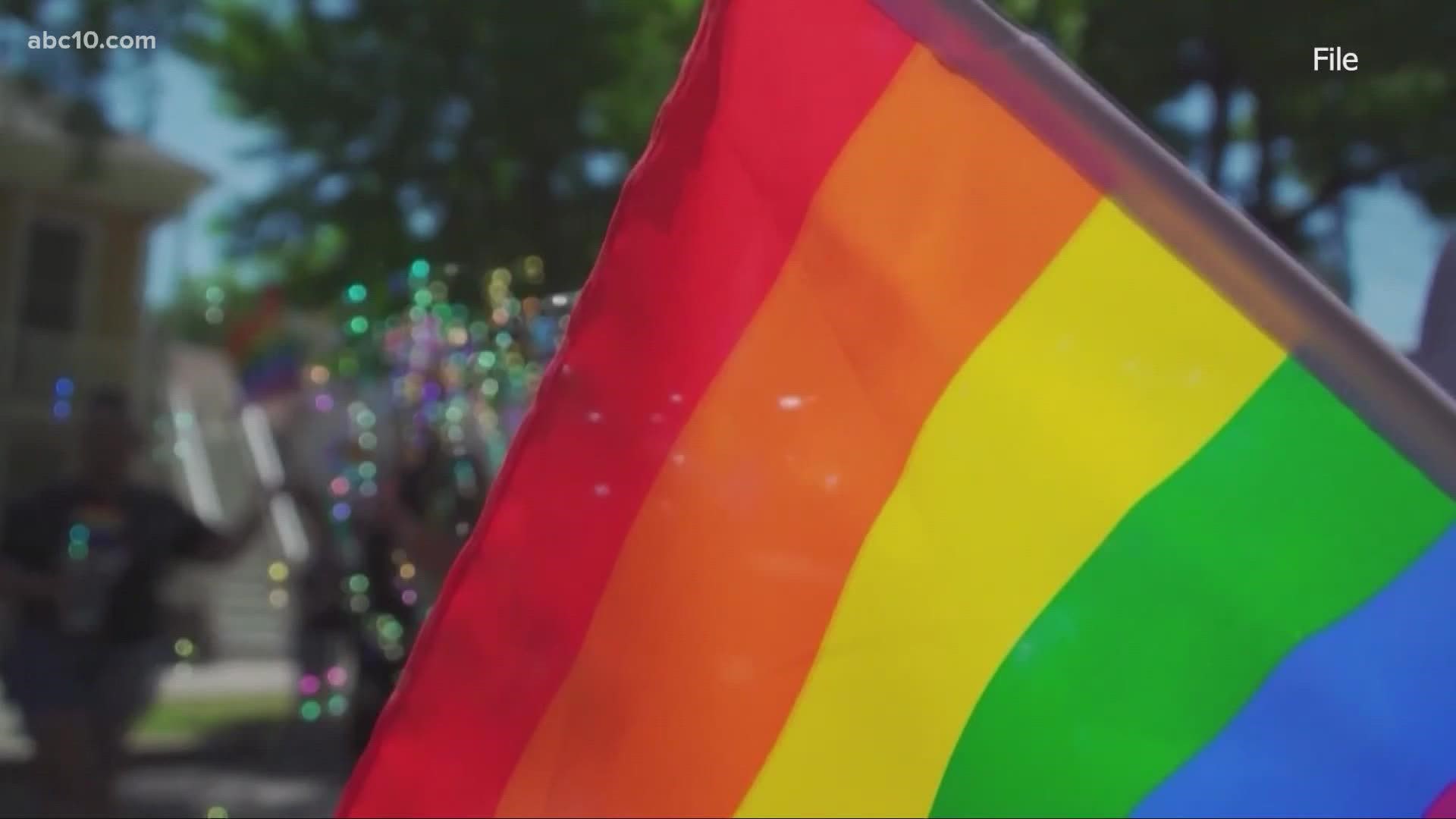SACRAMENTO, Calif — Today marks the 33rd anniversary of National Coming Out Day (NCOD). It's all about recognizing people in LGBTQIA+ communities and groups and the struggle for equal rights.
Coming Out Day is observed each year on Oct. 11 in the U.S. and other countries around the world. The Human Rights Campaign (HRC), an LGBTQIA+ civil rights organization, has chosen an annual theme surrounding the event for the past 15 years. The earliest theme was set in 1999, titled "Come Out To Congress." This year's theme is "Born to Shine."
"National Coming Out Day exists to promote a safe, inclusive and loving world where LGBTQ+ people can live truthfully, openly and without fear," said Joni Madison (she/her), Interim President of Human Rights Campaign. "As the internet has become an integral part of our lives, it often holds a critical role in the coming out process, especially for LGBTQ+ youth who can receive affirming support and grow into themselves in online spaces without judgment. It is absolutely critical to practice internet safety and put you or your child's mental health first, but engaging with welcoming LGBTQ+ online spaces can show us we are worthy of respect and celebration. Coming out is still so powerful. Our stories, our identities and our experiences give us collective strength."
Gay rights activists Robert Eichberg and Jean O'Leary founded Coming Out Day in 1988. October 11th is significant because it marks the anniversary of the second "National March on Washington for Lesbian and Gay Rights" in 1987. On that date, about half a million people attended the historic event to demand equality and fairness for people in LGBTQIA+ communities and groups.
The first march for justice happened on Oct. 14, 1979, with about 200,000 people. Since then, people in LGBTQIA+ communities, along with allies, have marched on the nation's capital on numerous occasions, including 1987, 1993, 2000, and 2009. The organizers and community activists of the original march identified the following Five Demands:
- Pass a comprehensive lesbian/gay rights bill in Congress.
- Issues a presidential executive order banning discrimination based on sexual orientation in the Federal Government, the military and federally-contracted private employment.
- Repeal all anti-lesbian/gay laws.
- End discrimination in lesbian mother and gay father custody cases.
- Protect gay and lesbian youth from any laws which are used to discriminate against, oppose and/or harass them in their homes, schools, jobs and social environments.
Despite progress, some people in LGBTQIA-plus communities still face discrimination in the workplace, school, health care, and some, by their own families. In fact, more than one in three LGBTQ Americans faced discrimination of some kind in the past year, including more than three in five transgender Americans. That's according to a 2020 study from the Center for American Progress, an independent nonpartisan policy institute. It shows more than half of LGBTQ Americans report hiding a personal relationship to avoid the experience of discrimination and about 1/5 to 1/3 have altered other aspects of their personal or work lives.
"National Coming Out Day is, a lot, for people who have not found the support and love they need," said Kay Whistler (she/her), President of PFLAG Sacramento. "We, in America, like to think that all people are created equal. But we are finding out more and more that being created equal does not mean that you are equal in the eyes of the law or people. We still have so much that we need to do so that we can be equal in education, housing, workers' rights, health care and all of those other areas. So, having a Coming Out Day is not to just show support to them [LGBTQIA+ people], but to also advocate for their rights and equality for everyone at all times."
According to a 2021 Gallup poll, about 5.6% - 18 million - adults in the U.S. identify as lesbian, gay, bisexual or transgender. Researchers interviewed 15,349 people, aged 18 and older. Out of the survey participants, 54% identify as bisexual, 24% say they're gay, 11% identify as lesbian, 11% use the term transgender, and 3% use another non-heterosexual term or preference to describe their sexual orientation.
Coming out to live openly isn’t something someone will do once, or even for one year. The HRC explains it’s a decision that a person will make every single day. Every coming out experience is unique and must be navigated in the way most comfortable for the individual. Whether it's for the first time ever or the first time today, coming out can be an arduous journey. But, there are plenty of community resources available to help those throughout the journey.
The organization also notes that coming out is a brave decision to live authentically. Remember, if you are not part of LGBTQIA+ communities or groups, you can still be a strong ally by accepting those that choose to share parts of their personal lives with you.
Visit the HRC website for more information on National Coming Out Day or for additional resources to help you come out and live openly at home, at work and in your community. The LGBT Community Center and PFLAG Sacramento also offer support to LGBTQIA+ people, along with their parents, families, and friends.
WATCH ALSO:
WATCH ALSO:
Born to Shine: HRC National Coming Out Day 2021

